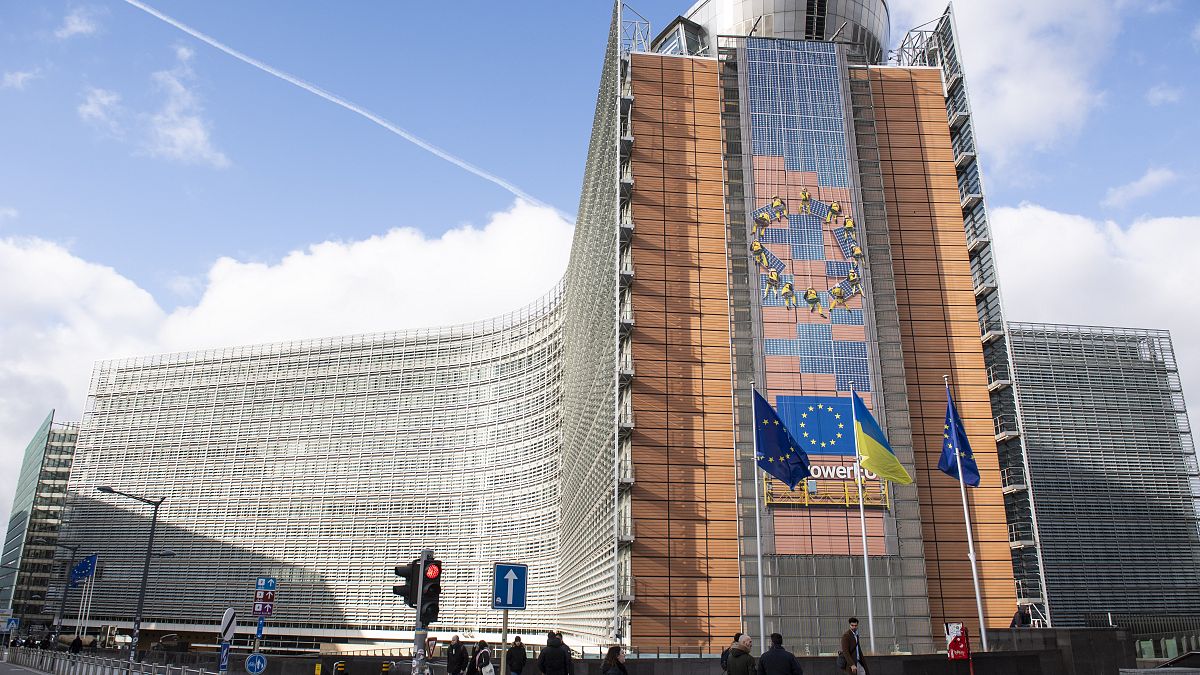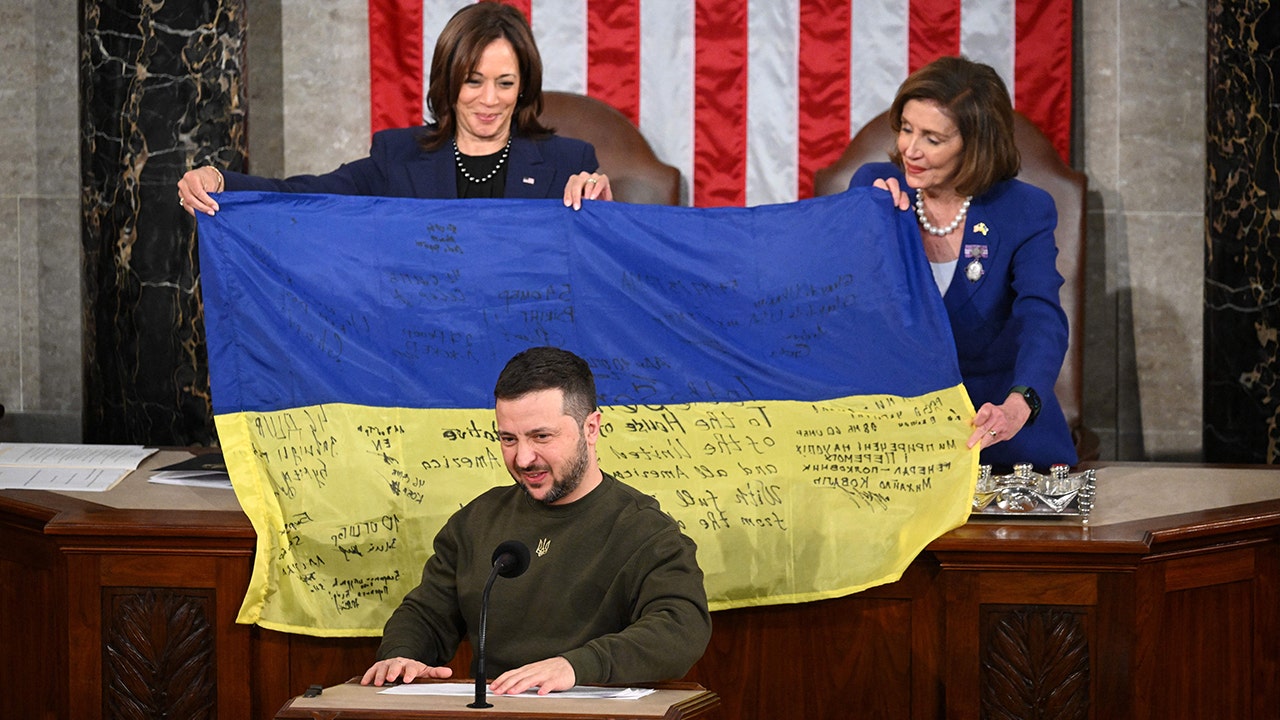World
Framework for Ukraine, Moldova's accession talks ready: EU Commission
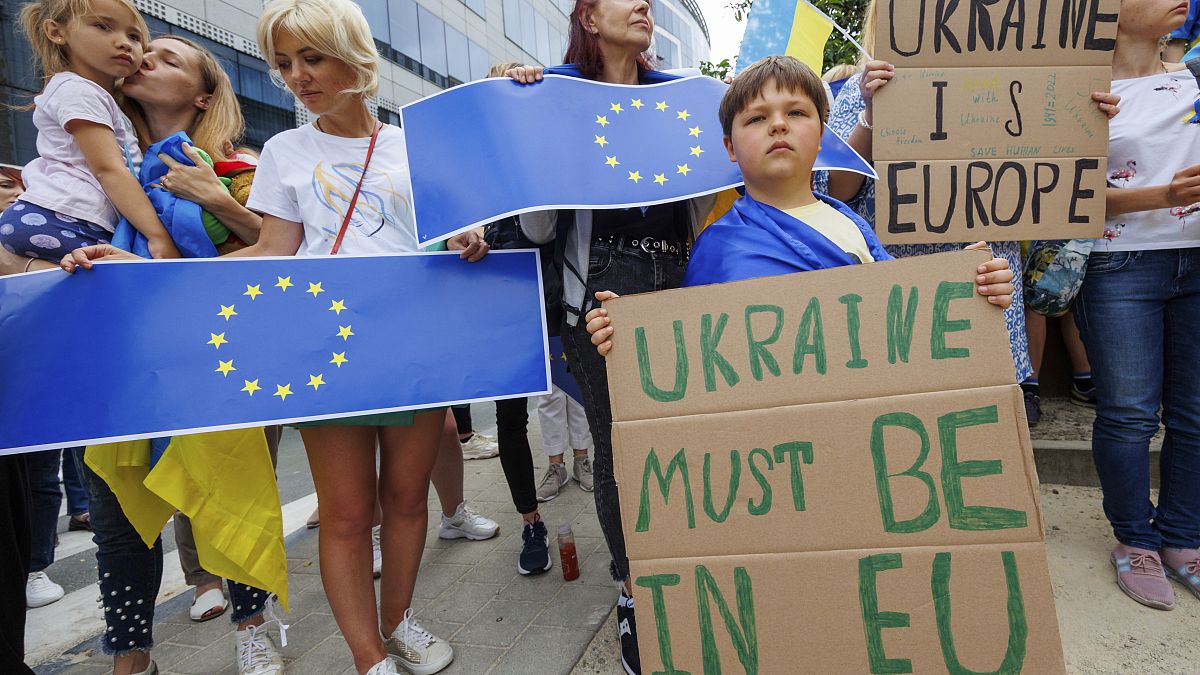
Ukraine and Moldova could soon make some headway in their paths towards EU membership after the European Commission on Tuesday sent its draft frameworks for accession talks to member states.
The frameworks, which set out the principles and guidelines that will steer Brussels’ accession talks with both Kyiv and Chișinău, will require the unanimous endorsement of all 27 EU leaders.
If approved, it could see both countries edge closer to their ambition of fully-fledged EU membership.
“Ukraine has demonstrated remarkable resilience and commitment and has made substantial progress on its EU path,” the EU’s high representative for foreign policy, Josep Borrell, said in a statement.
“Despite facing hybrid attacks by Russia, Moldova has made further progress in its EU accession reforms and has shown impressive resilience. The presentation of the draft Negotiating Frameworks for Ukraine and Moldova is a step forward in the process,” he added.
Ukrainian President Volodymyr Zelenskyy thanked von der Leyen personally for presenting the negotiating framework.
“Our European choice is being put into action and the day of Ukraine joining the EU is getting closer,” he said.
The opening of both Ukraine and Moldova’s accession talks was approved by EU leaders during a summit in December, despite the firm opposition of Hungarian Prime Minister Viktor Orbán, who questions Ukraine’s preparedness to start negotiations.
Orbán has also denounced Kyiv for failing to uphold the rights of the Hungarian minority in the westernmost Ukrainian province of the Transcarpathian Oblast.
In December, leaders overcame Orbán’s opposition campaign by tactically asking him to leave the room in order for him to abstain during the vote.
But with the adoption of the frameworks yet again requiring unanimity, Orbán has another opportunity to single-handedly veto the start of talks.
Candidate countries must implement a raft of judicial and constitutional reforms in order to comply with EU laws and standards before they can proceed to the next step in the accession process.
The Commission said in November that both Ukraine and Moldova had completed over 90% of those requirements, and simply needed to tie the loose ends of their reforms before entering negotiations.
Among Ukraine’s pending reforms were measures to tackle corruption – including through new appointments to top anti-corruption offices -, curb the influence of oligarchs, and safeguard the rights of national minorities.
On Monday, the Ukrainian parliament, the Verkhovna Rada, gave its final approval on a lobbying bill that will tighten rules for government lobbyists and stamp out the influence of oligarchs, in line with Brussels’ requests.
War injects urgency into EU enlargement
Candidate countries’ accession, usually a painstakingly long procedure, has been fast-tracked since Russia launched its full-scale invasion of Ukraine, with the war on Europe’s eastern doorstep providing a new impetus for the EU’s enlargement.
Ukraine applied for EU membership on 28 February 2022, just months after Russia invaded its territory. Moldova followed suit just days later. Both countries were given candidate status just four months later.
The speed at which their applications have been advanced is unprecedented in the bloc’s history.
The accession bids of Western Balkan countries have also taken on renewed momentum, as the bloc recognises the geopolitical imperative of delivering on its promises to the region.
Bosnia and Herzegovina became the fifth Western Balkan country to get the Commission’s greenlight for accession talks earlier on Tuesday, joining Albania, Montenegro, North Macedonia and Serbia. Kosovo is currently considered a ‘potential candidate’ for EU membership.
But questions and uncertainty remain over the feasibility of Ukraine’s accession to the bloc while the war is ongoing.

World
Bob Bakish Out as Paramount Global CEO

Amid the M&A drama enveloping Paramount Global, Bob Bakish is about to step down as CEO after eight years at the helm of Shari Redstone’s media empire.
Bakish is expected to resign under pressure as early as Monday. The executive has been with Paramount and its Viacom predecessor since 1997. He was recruited by Redstone in 2016 to help bring order to a company that had descended into public legal brawling among shareholders and a battle for control between Redstone and former Viacom CEO Philippe Dauman. Word of Bakish’s pending exit first surfaced Friday in the Wall Street Journal.
At present, Paramount‘s board of directors is deep in exclusive acquisitions talks with Skydance Media and RedBird Capital. Another group, Sony Pictures and Apollo Global Management, is poised to field a formal all-cash offer for the company next week as the May 3 expiration date of the exclusive negotiating window with Skydance nears. As the Skydance talks have dragged on for months, it’s become clear that Skydance CEO David Ellison would take the helm of the enlarged Paramount-Skydance operation while RedBird senior executive Jeff Shell, formerly CEO of NBCUniversal and a longtime Comcast executive, would serve Ellison’s No. 2 overseeing day-to-day operations. There has been no pretense about carving out a role for Bakish.
A rep for Paramount Global declined to comment Saturday. The company is set to report its first quarter earnings on Monday. Bakish will not take part in the traditional conference call with analysts that accompanies quarterly earnings disclosures, CNBC reported.
Bakish was virtually assured of leaving his post as the company’s leader once the sale process is completed, no matter who acquires Paramount Global. The company has been through the wringer over the past year with a slumping stock price, successive quarters of weak earnings pulled down by losses in its streaming division. CNBC reported that Bakish’s exit was hastened by his opposition to the merger plan that is coming together with Skydance.
World
British tourist has hand, thigh severed after being mauled by bull shark in Caribbean: 'Lucky to be alive'

A 64-year-old British tourist has lost his arm and leg after being mauled by a bull shark on the southeastern Caribbean island of Tobago.
According to Tobago House of Assembly (THA) Chief Secretary Farley Augustine, Peter Smith was in waist-deep water when the attack happened near the Starfish Resort in Courland Bay, a popular tourist destination in Tobago.
Augustine said the bull shark was approximately 8 to 10 feet long, and 2 feet wide.
“He’s lucky to be alive,” fellow tourist Stephanie Wright told The Mirror. “I saw a dorsal fin come out of the water and thought, ‘’Oh my God, it’s a shark.’’
A BRITISH TOURIST IS IN A HOSPITAL AFTER A SHARK ATTACK; TOBAGO CLOSES SEVERAL BEACHES
64-year-old Peter Smith was attacked by a suspected bull shark while swimming on the Caribbean island of Tobago. (Luis Javier Sandoval/VW Pics/Universal Images Group via Getty Images)
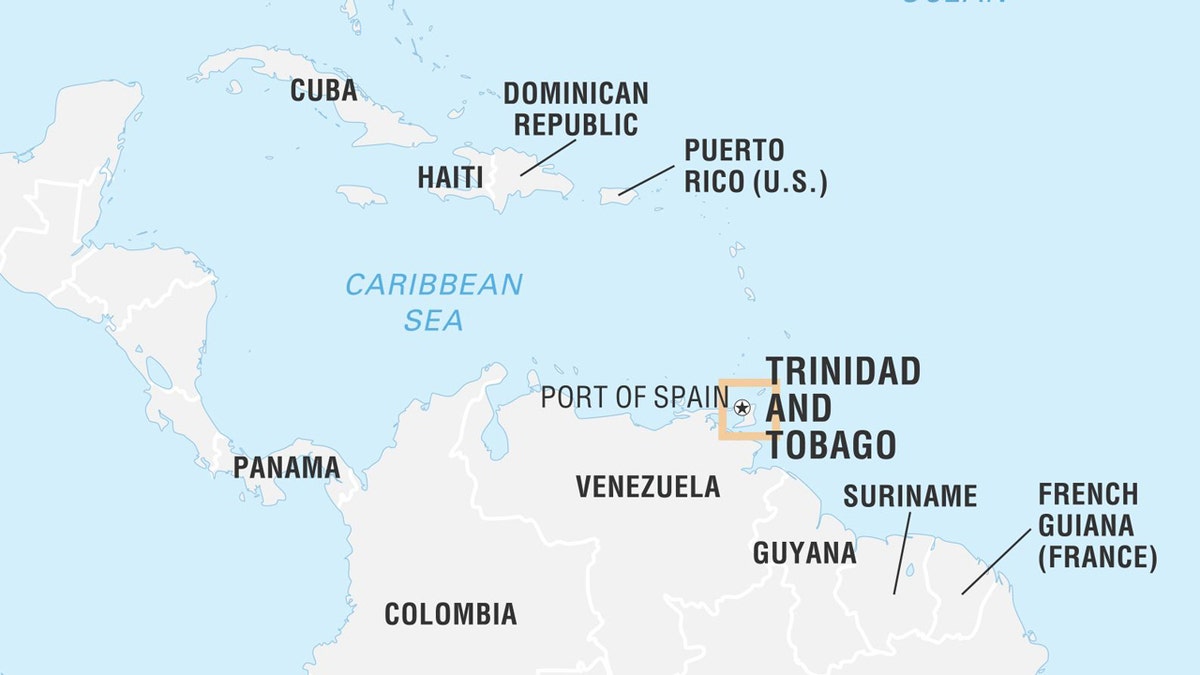
A shark attack on a British tourist in the southeastern Caribbean prompted the government of Trinidad and Tobago to close seven beaches and a marine park. (Encyclopaedia Britannica/Universal Images Group via Getty Images)
Augustine said that the attack happened just 30 feet from the shore on Friday, April 26, at 9:15 a.m.
Officials said that the tourist was hospitalized in an intensive care unit following the attack.

Peter Smith was hospitalized in an intensive care unit following the attack, officials said. (Tobago House of Assembly (THA) Chief Secretary Farley Augustine)
He said the victim’s left hand had been severed from the elbow down, his left thigh was also severed, and he also received lacerations to his stomach.
TRINIDAD AND TOBAGO FACING ‘NATIONAL EMERGENCY’ AFTER MAJOR COASTAL OIL SPILL
Photos from the Chief Secretary’s office showed graphic images of Smith’s severe shark bites along his body.

Tobago House of Assembly (THA) Chief Secretary Farley Augustine said that an 8- to 10-foot bull shark attacked Peter Smith. (Tobago House of Assembly (THA) Chief Secretary Farley Augustine)
The Chief Secretary said that he had spoken to the British High Commissioner and the Trinidad and Tobago Coast Guard and the agencies were closely monitoring the area.
“Currently, we are doing drone reconnaissance/surveillance, Coast Guard surveillance, and the Department of Fisheries is combing the area to ensure safety,” Augustine said.
Shark attacks are rare. Last year, there were 69 unprovoked attacks and 22 provoked bites worldwide, along with 14 fatalities, according to the Florida-based International Shark Attack File.
World
Iraq criminalises same-sex relationships with maximum 15 years in prison

The law is backed mainly by Shia Muslim parties who form the largest coalition in Iraq’s parliament.
Iraq’s parliament has passed a law criminalising same-sex relationships with a maximum 15-year prison sentence, in a move it said aimed to uphold religious values, but was condemned by rights advocates as the latest attack on the LGBTQ community in Iraq.
The law adopted on Saturday aims to “protect Iraqi society from moral depravity and the calls for homosexuality that have overtaken the world,” according to a copy of the law seen by the Reuters news agency.
It was backed mainly by conservative Shia Muslim parties who form the largest coalition in Iraq’s parliament.
The Law on Combating Prostitution and Homosexuality bans same-sex relations with at least 10 years and a maximum of 15 years in prison, and mandates at least seven years in prison for anybody who promotes homosexuality or prostitution.
The amended law makes “biological sex change based on personal desire and inclination” a crime and punishes transgender people and doctors who perform gender-affirming surgery with up to three years in prison.
The bill had initially included the death penalty for same-sex acts but was amended before being passed after strong opposition from the United States and European nations.
‘A serious blow to human rights’
Until Saturday, Iraq did not explicitly criminalise gay sex, though loosely defined morality clauses in its penal code had been used to target LGBTQ people, and members of the community have also been killed by armed groups and individuals.
“The Iraqi parliament’s passage of the anti-LGBT law rubber-stamps Iraq’s appalling record of rights violations against LGBTQ people and is a serious blow to fundamental human rights,” Rasha Younes, deputy director of the LGBTQ rights programme at Human Rights Watch, told Reuters.
“Iraq has effectively codified in law the discrimination and violence members of the LGBTI community have been subjected to with absolute impunity for years,” the AFP news agency quoted Amnesty International’s Iraq Researcher Razaw Salihy as saying.
“The amendments concerning LGBTI rights are a violation of fundamental human rights and put at risk Iraqis whose lives are already hounded daily,” Salihy added.
Lawmaker Raed al-Maliki, who advanced the amendments, told AFP that the law “serves as a preventive measure to protect society from such acts”.
Major Iraqi parties have in the past year stepped up criticism of LGBTQ rights, with rainbow flags frequently being burned in protests by both governing and opposition conservative Shia Muslim factions last year.
More than 60 countries criminalise gay sex, while same-sex sexual acts are legal in more than 130 countries, according to Our World in Data.
-

 Kentucky1 week ago
Kentucky1 week agoKentucky first lady visits Fort Knox schools in honor of Month of the Military Child
-
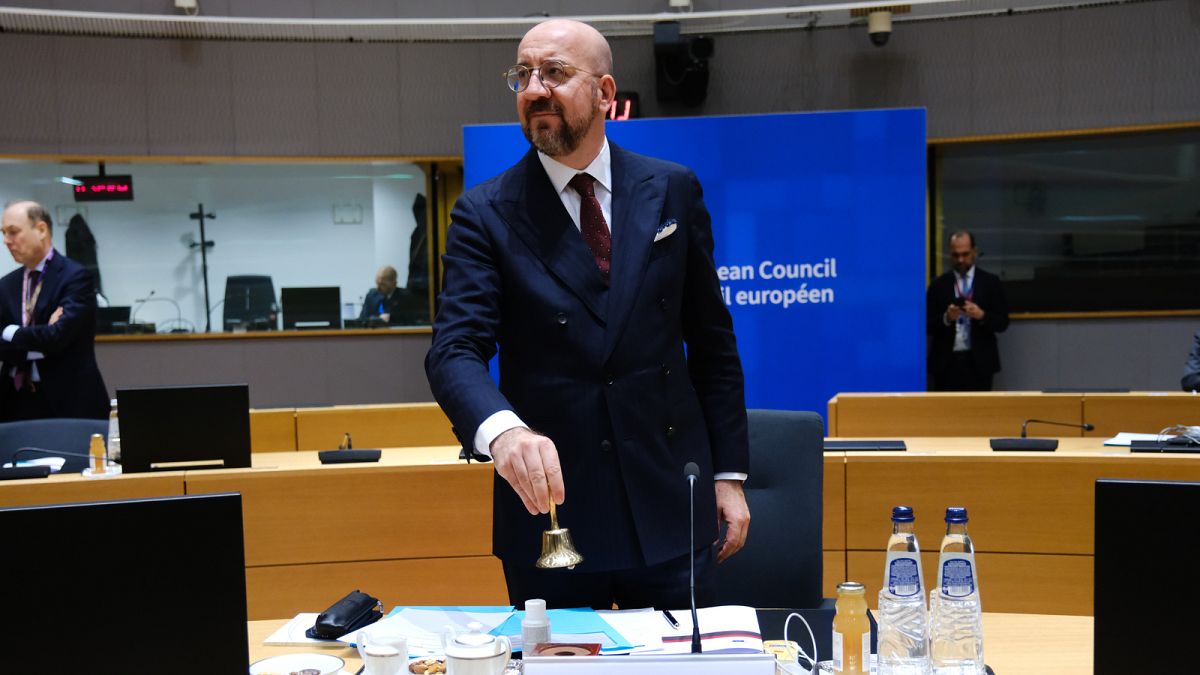
 World1 week ago
World1 week agoEU leaders weigh Lebanon partnership in response to Middle East crisis
-
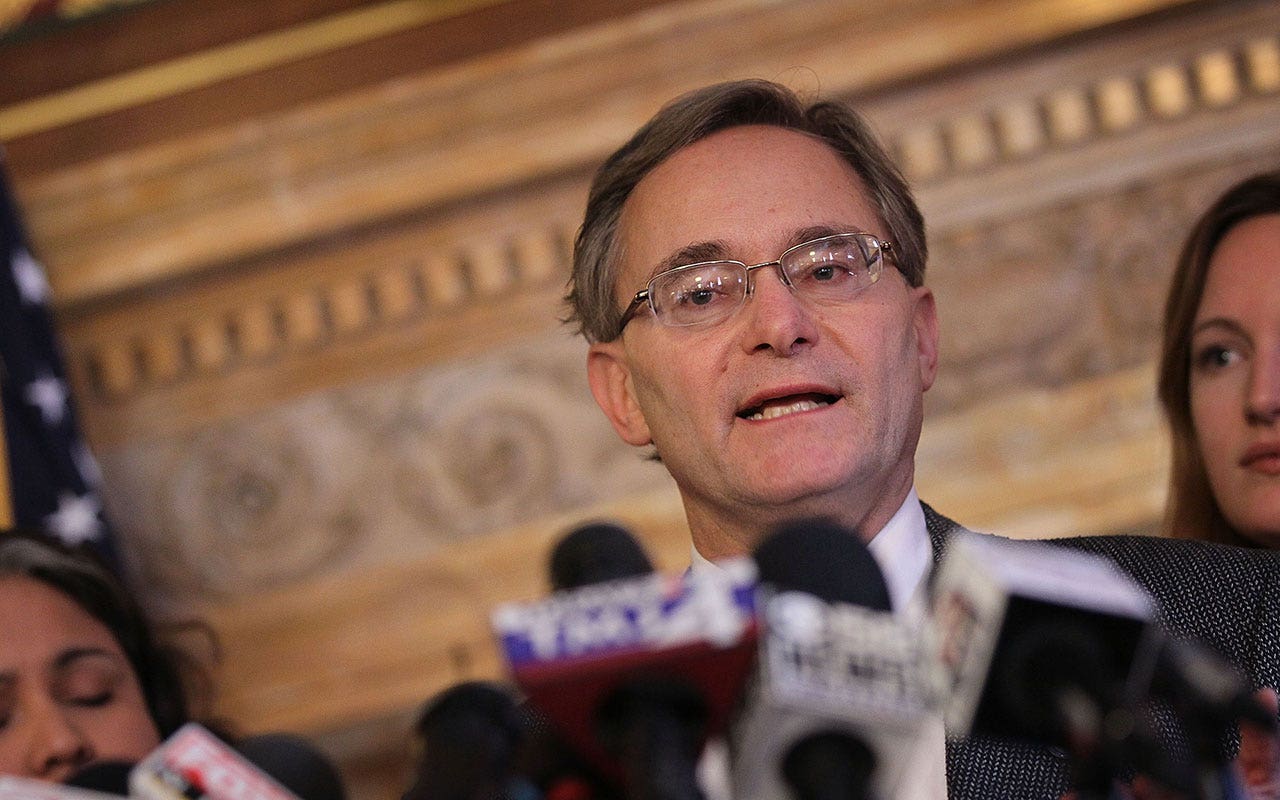
 Politics1 week ago
Politics1 week agoFormer Wisconsin Democratic Rep. Peter Barca launches congressional comeback bid
-

 World1 week ago
World1 week agoIsraeli attack on nuclear sites to prompt tit-for-tat, pursuing nukes: Iran
-

 News1 week ago
News1 week agoProsecutors say Trump violated gag order 7 times: Live updates
-

 World1 week ago
World1 week agoIranian media says three drones downed after explosions heard in Isfahan
-

 World1 week ago
World1 week agoShipping firms plead for UN help amid escalating Middle East conflict
-

 Movie Reviews1 week ago
Movie Reviews1 week agoFilm Review: Challengers – The Knockturnal





